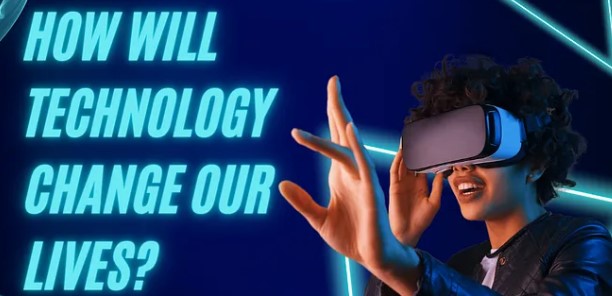1. How will technology change
Our lives now revolve around technology, and its future improvements have the potential to completely change how we interact with the outside world, live our lives, and work. The future is full with exciting possibilities, from environmentally friendly innovations that are changing urban living to artificial intelligence (AI) that is reshaping industries. Innovations like 5G technology and virtual calls will make communication quicker and more engaging. Wearable technology and AI-powered diagnostics will revolutionize healthcare and enhance patient care. AI-powered individualized instruction and virtual learning platforms will also make education more accessible. As time goes on, technology will address global issues like resource management and climate change in between improving ease and efficiency. We can build a more intelligent, connected, and sustainable future by using innovation wisely.
What is the top 10?
a. Both machine learning and artificial intelligence (AI)
AI is at the leading edge of automation, enabling smarter and more effective operations in everything from chatbots to self-driving automobiles.
b. 5G Technology
The Internet of Things (IoT) and smart cities are being powered by the fifth generation of wireless networks, which are enabling faster internet speeds, lower latency, and improved connectivity.
c. The blockchain
Blockchain, most known for its use in cryptocurrencies, guarantees safe and transparent transactions and has uses in supply chain management, healthcare, and finance.
d. The Quantum Computer
Compared to conventional computers, quantum computers may handle complicated problems more quickly, perhaps leading to advances in logistics, cryptography, and medicine development.
e. The Internet of Things
IoT facilitates smooth communication and automation by connecting commonplace gadgets, such as wearable fitness trackers and smart appliances.
f. Technologies for Renewable Energy
Rapid advancements in energy storage technologies, wind turbines, and solar panels are increasing the affordability and efficiency of renewable energy.
g. Virtual reality (VR) and augmented reality (AR)
By combining the real and virtual worlds to create immersive digital experiences, AR and VR are revolutionizing gaming, education, and retail.
h. Automation and Robotics
Robots automate processes and increase productivity in a variety of industries, including manufacturing, healthcare, and even residences.
j. Genetic engineering and biotechnology
Developments in agriculture and medicine are being made possible by improvements in gene editing technologies, such as CRISPR.
k. Technologies for Cybersecurity
Advanced cybersecurity solutions, such as based on artificial intelligence threat identification and encryption, are crucial to safeguarding data and systems as cyber threats increase.
3. Technology change in life
It is expected that technology will change our life in numerous ways, such as:
1. The Revolution in Healthcare
By enabling more individualized treatment regimens and assisting physicians in making more accurate diagnoses, artificial intelligence (AI) is revolutionizing the healthcare industry. Early interventions are becoming possible, hospital visits are down, and healthcare is becoming more accessible thanks to telehealth and remote patient monitoring.
2. More Intelligent Transportation
The goal of cutting-edge technologies like smart traffic systems and driverless cars is to improve the efficiency, speed, and safety of transportation. These developments have the potential to decrease carbon emissions, traffic, and accidents.
3. Bringing Education Up to Date
AI is transforming education with intelligent tutoring systems, virtual classrooms, and individualized learning experiences. With the help of these resources, students can learn at their own speed, overcoming social and geographic constraints.
4. Developments in Agriculture
With the use of devices like drones, smart sensors, and precision agriculture, technology is improving farming methods. These developments guarantee sustainable food production, increase agricultural yields, and cut waste.
5. Effects on the Environment
Climate change is being aided by technological innovations such as carbon capture systems, smart grids, and renewable energy sources. By easing the shift away from fossil fuels, these instruments help create a cleaner, more sustainable world.
6. Innovation in Finance
By providing quicker, more transparent, and secure transactions without the use of traditional banks, decentralized finance (DeFi) systems are revolutionizing the financial services industry. This shift is being driven by blockchain technology, which guarantees security and efficiency.
7. More Customization
From customer support to entertainment, AI-powered solutions such as chatbots, virtual personal assistants, and automated services are providing incredibly individualized experiences.
8. The Internet’s Sense of Touch
Deeper emotional ties are being forged thanks to emerging technologies like wireless soft e-skins, which enable physical feelings like hugs to be given and received online.
4. How will society change in the future?
Future social transformations will occur as a result of global challenges, changing social norms, and technological breakthroughs. The way individuals interact will be redefined by the digital age. Virtual reality and social media will foster closer online ties, but they may also give rise to worries about digital reliance and mental health. People will build networks and relationships beyond geographic borders, making communities more global.
5. Is technology good or bad for students?
For pupils, technology presents both advantages and difficulties. Through individualized instruction, online resources, and interactive tools, it improves learning and increases access to knowledge. But too much screen time and dependence on technology can cause distractions and impair critical thinking. Technology use must be balanced. It gives kids the ability to learn efficiently and maintain connections when utilized appropriately.
6. Can teachers be replaced by technology?
Teachers cannot be completely replaced by technology, but it can improve education. Although AI and online platforms offer individualized instruction and a wealth of resources, they fall short of teachers in terms of emotional intelligence and mentorship.
In order to mentor pupils, encourage creativity, and meet their specific requirements, teachers are essential. Although technology can be used to enhance education, human interaction in the classroom is still essential for comprehensive learning.
7. What is Google Classroom?
Google Classroom, also known as Classroom, is an online platform that is free created by Google to facilitate effective communication, assignment management, and teamwork between educators and learners. It creates a smooth learning experience by integrating with other Google products, such as Drive, Meet, and Google Docs.
While students may access resources, turn in work, and participate in conversations from any device, instructors can use it to assign and mark assignments, give comments, and track progress.
8. Who named technology?
Techne (meaning art, craft, or skill) and logos (meaning word, study, or discourse) are the Greek terms from which the word “technology” grows.
Researchers like Johann Beckmann are credited with coining the term in the 17th century and connecting it to the methodical study of manufacturing arts. It has expanded over time to include devices, machinery, and inventions that address human issues.
9 Which country is no 1 in technology?
According to recent estimates, the US is frequently regarded as the world’s most technologically advanced nation, especially because of its supremacy in fields like artificial intelligence (AI), creativity, and tech behemoths like Apple, Google, Microsoft, and Tesla.
China, a fierce rival, is quickly expanding its technical dominance by making notable advancements in 5G technology, e-commerce, artificial intelligence, and quantum computing. Although both nations are leading the way, their areas of strength differ.
10. Who is the father of technology?
A singular “father of technology” does not exist because technology is a vast field that includes numerous disciplines. Nonetheless, several influential people are frequently given credit for the fundamental advancements in contemporary technology:
a. Tesla, Nikola
One of the most important inventors in technological history, Tesla is well-known for his innovative work in electrical engineering, especially with alternating current, or AC, power systems.
b. Edison, Thomas
Edison, who is credited with creating the electric lightbulb, phonograph, and numerous other gadgets, was instrumental in the advancement of electrical technology.
c. Turing, Alan
Turing is frequently called the founding man of computer science because of his theoretical contributions, which established the groundwork for contemporary artificial intelligence and computing.
Also Read: Savera Nadeem Famous Actor No Good mother passes away




